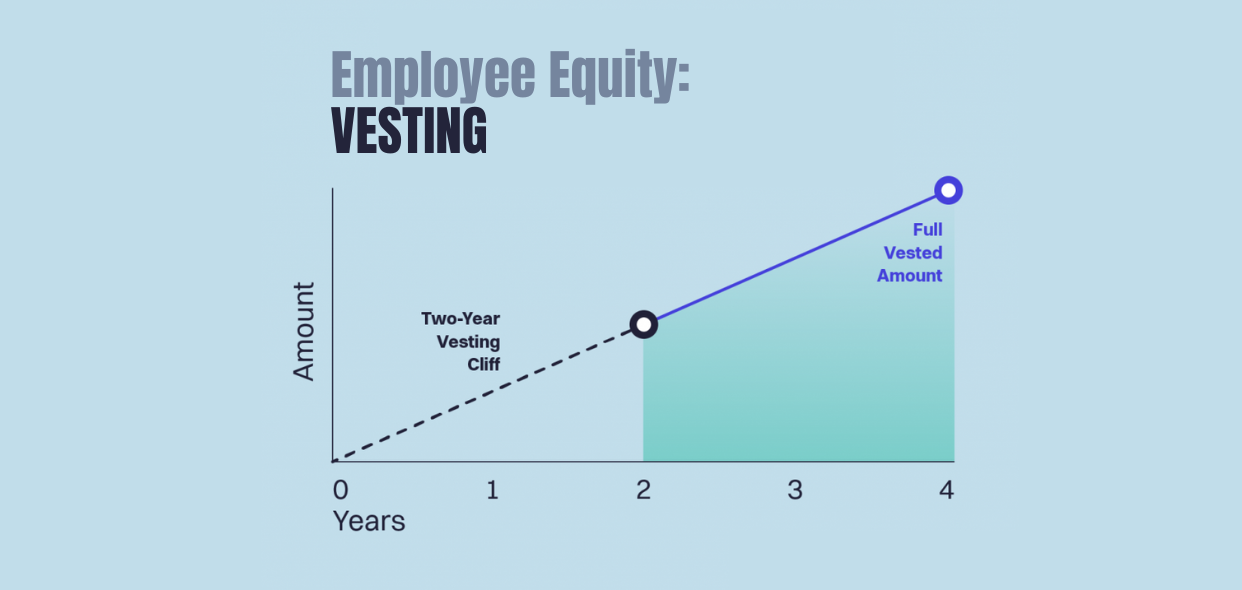Overseeing a sales team is a challenge for anyone, whether the sales manager is new to the business or well-seasoned. Many studies have proven that incentivizing someone equals results; after all, who doesn't want extra compensation for their hard work?
There are a handful of compensation models that can align incentives to entice your sales manager to become a sales-handling machine.
To successfully motivate your sales manager, you can incentivize them with compensation for meeting sales metrics and KPIs, reaching high profit margins, and their behaviors. You can also reward your sales manager with a cliff vesting plan.
Managing sales is a next-level task that requires calculated planning. Motivating the manager will help them reach your business goals which can be achieved through rewards that align with incentives. You'll want to know what that entails and ways to do so.
The 3 Main Sales Manager Incentive Compensation Models
Incentive compensation is either a monetary or non-monetary reward given to someone for meeting a set benchmark, such as sales targets. The sales manager develops and handles the team to be the powerhouse of the business.
Finding an incentive scheme that works for them drives them to manage your sales team successfully and remain motivated and happy.
Incentivize Total Sales Metrics And KPIs

Sales metrics and KPIs are the most incentivized outcome for a sales team and are proven to yield results, and it works for sales managers too. You should incentivize the average metric and KPI results of the team they manage.
The difference between metrics and KPIs is that metrics are sales related, while KPIs are based on strategic goals. Both prove vital for sales.
Some sales metrics and KPIs that you can incentivize include:
You should choose the metrics and KPIs that matter most to your business, set a realistic standard you'd like to meet, and base the incentive on that. You can make multi-tier targets that earn the sales manager a monetary reward based on which target level their team reaches. This model's best incentive is a commission structure or salary bonus based on the quota they meet.
To ensure your incentive compensation model is successful, you need to make the reward system specific and state it clearly to your manager, so they know what they are working towards and can align their team to reach those goals. You can update and adjust the incentive program periodically as different metrics, and KPIs need more attention.
You can also incentivize specific performance metrics and KPIs weekly using smaller compensation options, either monetary or non-monetary. This approach will achieve faster results, keeping the sales manager's work ethic high because the rewards are short-term rather than only after the month ends.
Why you should choose this model:
Metrics and KPIs are what measure sales effectiveness. The business would be lost without them, and to achieve success, they need to be measured, and the sales manager needs to meet a certain standard to keep the business running optimally.
Performance indicators are golden, and rewarding your sales manager is critical to attaining results. This is the most common compensation model for individual salespeople, but it also does the trick for sales managers.
Compensate Based On Gross Profit Margins

The sales team is arguably the most vital aspect of the business's success, as no sales mean no profit. If your business meets a promising profit margin, compensating the manager who drove the success makes perfect sense.
In this model, you can base compensation on the business's gross profit instead of metrics and KPIs, which means that the business hands out rewards when they have made money instead of just performance measures. Profit compensation could be a salary bonus or commission in relation to the manager's monthly or annual gross revenue for the business.
It may be a bit trickier to navigate as you set the plan, but it gives the sales managers a higher earning potential, resulting in effective motivation and management performance. You can also set non-monetary incentives like an expenses-paid holiday if they reach a profit threshold.
Why you should choose this model:
Replacing certain sales KPIs and metrics with the gross profit model will save on the business's costs and reflect a realistic result on your sales manager's performance. For example, if they had a low conversion from leads to sales, the company doesn't lose out because incentives get based on the scope of profitability.
Reward Your Sales Manager With Cliff Vesting

Cliff vesting entails rewarding your sales manager by giving them equity in this business once they've reached certain milestones or periods. This strategy would provide the sales manager partial ownership of the company, as the most common cliff vesting entails awarding shares.
You'll want to draw up a vesting benefit plan stating the conditions that incentivize the manager to stay with the business and achieve particular objectives. You can use time or sales goals as benchmarks. A typical plan could have five years of employment before the manager becomes fully vested. You can also reward a percentage of their equity as they progressively accomplish employment milestones.
Why you should choose this model:
A happy sales rep manager reflects remarkably on their sales performance. Rewarding commitment above and beyond performance metrics positively impacts an employee's psychology. This kind of compensation model recognizes their hard work and effort by offering them equity that makes them proud and more inclined to do well.
Cliff vesting lets your sales manager feel recognized and honored, contributing to a cheerful work environment that keeps them loyal to your company. This process supports a low staff turnover, meaning fewer hiring and training costs, and rewarding your sales manager with cliff vesting results in an expert employee that knows your business through and through.
Final Thoughts
Incentivizing your sales manager should include compensation based on their commitment to the job and the results you want from their sales reps. Result incentives could be performance, profit, or behavior related.
Whether your rewards are monetary or not, incentives are proven to promote a sales manager's workplace satisfaction which helps them manage their team to produce satisfying results.
(Related article: How to Create a Highly Effective Compensation Strategy for the General Manager of Your Small Business)
